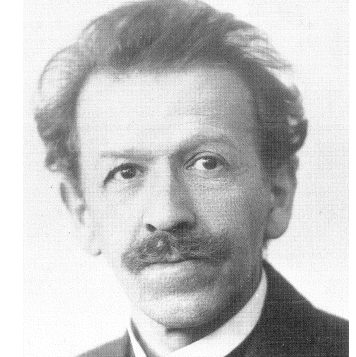Composer Gustav Lewin (1869 – 1938) started early as a conductor and pianist in many opera houses all over Germany.
19 years old he married a singer from Weimar and wanted to settle down there with her. For many years, he then taught at the University of Music in Weimar, Germany. He became one of their most important teachers, and in 1922 he was appointed musical director.
His songs were very popular and helped him support himself until they were banned along with all other works of jews. Lewin lost everything when the nazis took over, starting with his work in 1934. This was the start of very difficult years, where the merchants would stop delivering his heating material and former colleagues would denounce him.
One fall day in 1938 he greeted a former student of his on the street. This led to Lewin being screamed at “we don’t want to be greeted by jews”. Lewin went home to his cold apartement, stopped eating and drinking and died on the 17th of October.
All you need is three bars of a children’s lullaby to hear what a magnificent musician he was. Knowing his fate breaks my heart when I hear his beautiful songs.

Comments
Richard Wetz – who was a great composer of songs and left more than 100 pieces in this genre – is incorrectly quoted here. The quotation dates from a letter written on 3 October 1911 to poet Ernst Ludwig Schellenberg (whose poems were set into music by both Wetz and Lewin) and has not an antisemitic background. There are only a few statements by Wetz about Lewin known via the published literature, all dating between 1911 and 1913. Wetz disliked Lewin because of Lewin’s work as a critic. In the 1910s Wetz as a conductor in Erfurt worked to establish the works of Bruckner and Liszt. Lewin wrote articles about this composers which made Wetz angry. Wetz was an admirer of Schopenhauer, and in the tradition of his idol he more than once left very misanthropic commentaries about people disliked by him. So it was the case with Lewin.
Here is the quotation in its original context, translated into English:
“I know that true humans will love my art, I have made this experience, and among these experiences you [Schellenberg] are one of the nicest. How far I am removed from subjects a la Lewin, how less I am capable to think of such beings as humans you know as well as I know. Let we let them go; they walk the well-worn path which 99 2/3 % of the humans walk, and which we never will be able to enter.”
It can be found in: Richard Wetz. Ein Komponist aus Erfurt, ed. by Rudolf Benl, Erfurt 2010, p. 146)
The quotation does surely not show Wetz as the most friendly of humans, but it is no antisemitic statement. In fact no antisemitic statement about Gustav Lewin by Richard Wetz in known.
Thank you!
Hi Vera, talk to the library of the University of Weimar.
Hello,It is so wonderful music. Anybody know, where I could get the scores? Thanks!
Pingback: Settled in – Vagabond Dad